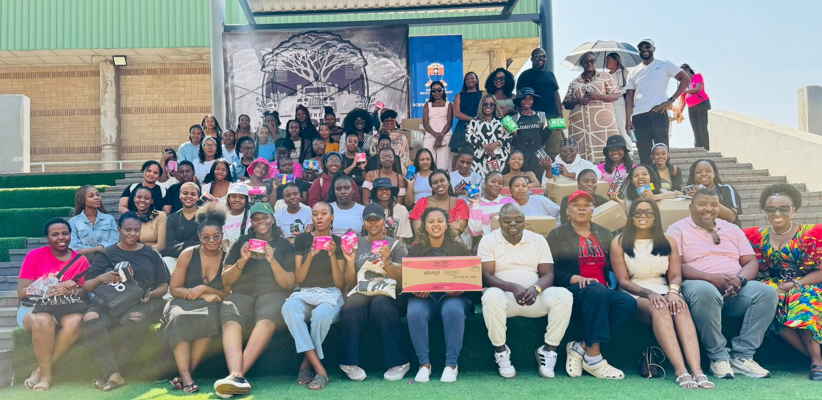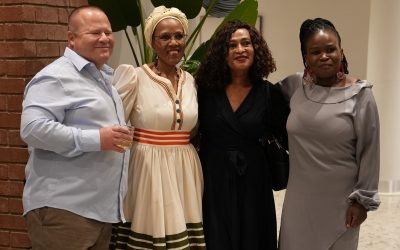A convoy of colourful Jeeps rumbled onto the campus of Sefako Makgatho Health Sciences University (SMU), attracting attention—but this was no parade. Members of the Capital Jeep Foundation, led by Chairperson Karabo Mokwena and co-founders Tiyane Hlongwane and Kgomotso Madisa, arrived with a purpose: to restore dignity and support young women through a sanitary pad drive in partnership with SMU’s School of Science and Technology (SST).
 “Our vision is simple but transformative,” explained Mokwena. “No girl child should miss classes or lose confidence due to lack of access to sanitary pads. Small, consistent acts of kindness can restore dignity and open doors for future leaders.”
“Our vision is simple but transformative,” explained Mokwena. “No girl child should miss classes or lose confidence due to lack of access to sanitary pads. Small, consistent acts of kindness can restore dignity and open doors for future leaders.”
For SST, hosting the drive aligned with its commitment to holistic student success. SST Operations Manager Dr Esmey Moema reflected: “The well-being of our students is as important as their academic performance. Hosting this drive affirms our commitment to supporting students in every aspect of their lives.”
The initiative coincided with Women’s Month, a deliberate choice to highlight the urgent need for access to sanitary products. Hlongwane said, “Women’s Month was the perfect time to take action. It is not enough to celebrate women in words; we must also demonstrate our commitment in practical, life-changing ways.”
Approximately 3,000 packs of sanitary pads were donated, benefiting around 1,500 female students, both undergraduate and postgraduate. For many, the donations carried symbolic significance. Thandi Caroline Sebola, a postgraduate recipient, said: “Sometimes we think no one notices the challenges we go through quietly. Today, this drive reminded us that we matter and that our dignity is worth protecting.”
 The Jeep convoy added extra impact. Dozens of vibrant vehicles lined up, creating a striking visual across campus. Madisa explained, “The convoy symbolises unity. When people and communities move in the same direction with one purpose, the impact becomes impossible to ignore.” The vehicles became metaphors for collective strength and action.
The Jeep convoy added extra impact. Dozens of vibrant vehicles lined up, creating a striking visual across campus. Madisa explained, “The convoy symbolises unity. When people and communities move in the same direction with one purpose, the impact becomes impossible to ignore.” The vehicles became metaphors for collective strength and action.
The collaboration also highlighted the power of partnerships between academic institutions and community organisations. Mokwena emphasised, “When universities and civil society groups unite, the results speak for themselves. We are stronger together, and initiatives like this show that everyone has a role in creating equal opportunities.”
The initiative inspired both students and staff, sparking conversations about dignity, equality, and breaking barriers to education. Dr Moema noted, “What we witnessed is more than charity. It is empowerment. It is equal opportunity in action. It demonstrates that no challenge is too small to address when we care about students’ futures.”
For the Capital Jeep Foundation, this drive is just the beginning. Hlongwane said, “We want to build on this momentum and ensure that young women never feel excluded or disadvantaged due to circumstances beyond their control.”
As the Jeeps departed, they left behind more than donations—they left a reminder of what can be achieved when compassion drives action. For SMU SST and the Capital Jeep Foundation, this was more than a drive; it was a movement.
By Dimakatso Modise



